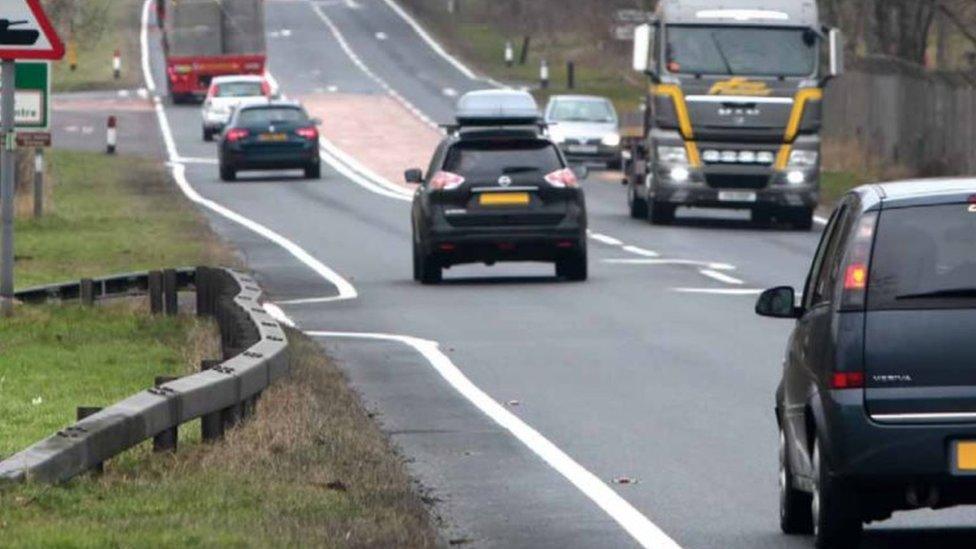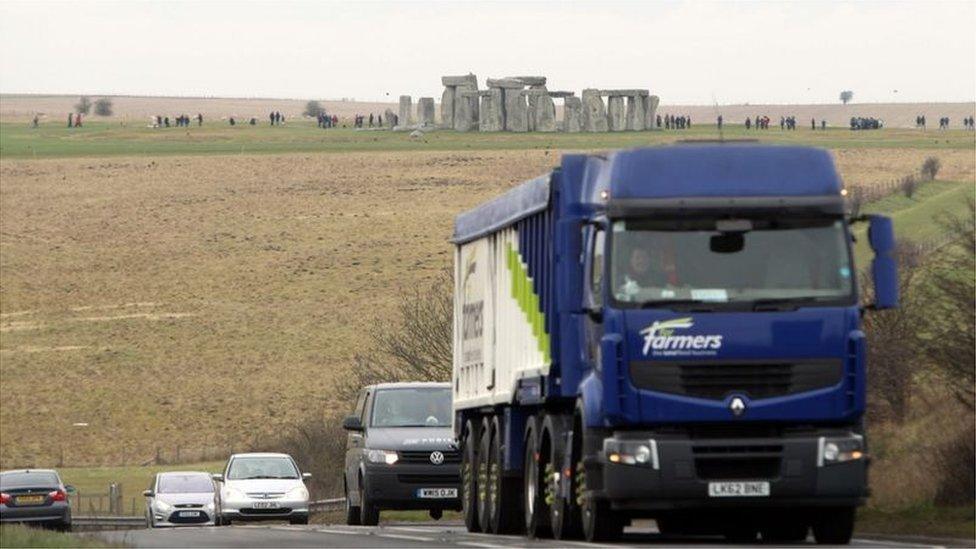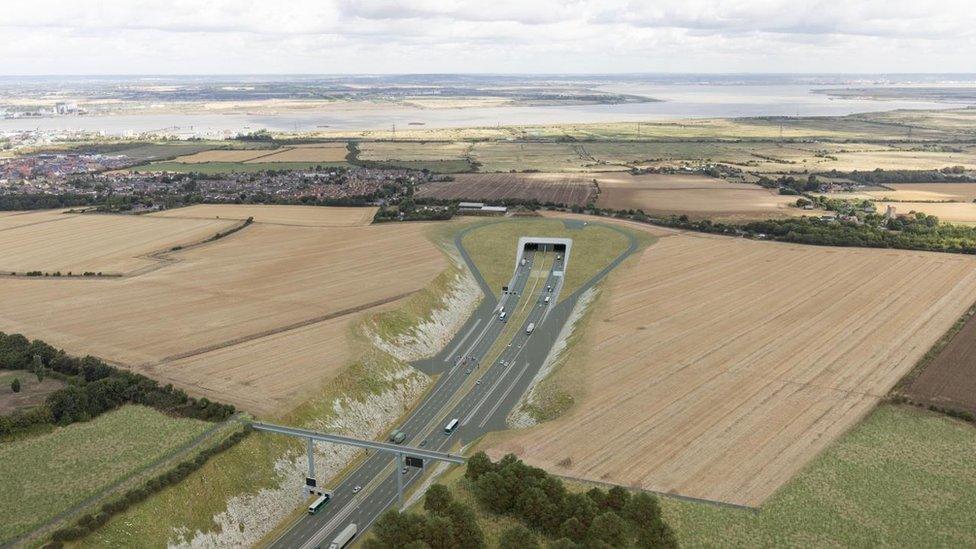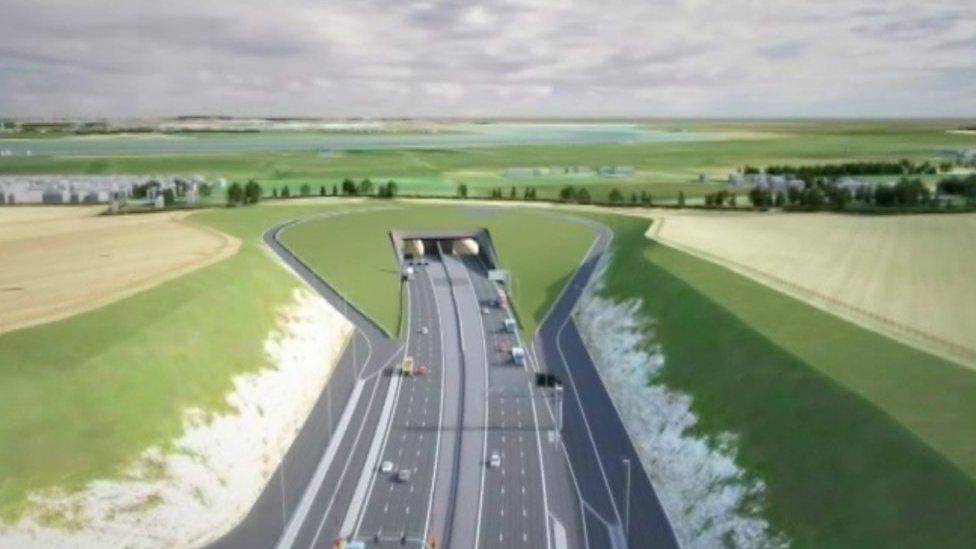High Court bid against road schemes dismissed
- Published

Other work in the government strategy could see improvements to the A66 between Cumbria and North Yorkshire
A High Court challenge against a proposed £27bn road development scheme that includes a new road tunnel close to Stonehenge has been dismissed.
The Road Investment Strategy 2 (RIS2) relates to 45 government projects in England.
Campaigners said the government ignored the environmental impact of RIS2 and it had been unlawfully approved.
Mr Justice Holgate said its net zero carbon target had "plainly been taken into account" when it was approved.
Other schemes in the strategy, external include the Lower Thames Crossing linking Kent and Essex.

The A303 is often congested near the ancient stones in Wiltshire and a new tunnel would improve that, the government says
It also includes a plan to dual single carriageway stretches on the A66, between junction 40 of the M6 in Penrith, Cumbria, and the A1(M) at Scotch Corner, North Yorkshire.
The judgement is unconnected to a separate legal challenge made by Save Stonehenge World Heritage Site (SSWHS), which is opposed to the £1.7bn plan for works close to the Wiltshire site.
Transport Action Network (Tan), a not-for-profit company that took the legal action against the RIS2 plans, said the judgement would "surely send shivers down the spine of anyone hoping for urgent action on climate".
Tan said transport secretary Grant Shapps and the Department for Transport (DfT) had unlawfully failed to take account of the "obviously material" impact of the road schemes on achieving climate change objectives.
Its director, Chris Todd, added: "Even if rising waters were lapping at the steps of the courts and Whitehall, it appears scrutiny of government climate decisions would still be side-stepped."
But the DfT said its plan had taken "full and proper regard" to the environment.

The mooted Lower Thames Crossing tunnel could reduce congestion but environmentalists have been critical
Mr Justice Holgate said in a ruling earlier that legislation requires a transport secretary setting an investment strategy to "have regard to its effect on the environment, without any specific reference to climate change".
He added the DfT's barrister had offered evidence that the government was "taking a range of steps to tackle the need for urgency in addressing carbon production in the transport sector".
Mr Justice Holgate added: "Whether they are enough is not a matter for the court, but the evidence is plain that the government is seeking to deal with the need for urgency."
A DfT spokesperson said: "We welcome the court's judgement, which has found that our approach to assessing the carbon impacts of our road investment strategy was entirely lawful.
"Decarbonising transport is one of our main priorities and roads will continue to play a huge role in that, facilitating cyclists, buses and electric vehicles as we work towards banning the sale of petrol and diesel cars by 2030.
"Earlier this month we published our Transport Decarbonisation Plan which will further set transport on the path to achieving net zero by 2050."

Follow BBC West on Facebook, external, Twitter, external and Instagram, external. Send your story ideas to: bristol@bbc.co.uk , external
- Published23 June 2021

- Published17 February 2021

- Published12 February 2021

- Published6 January 2021

- Published23 December 2020

- Published6 December 2020
